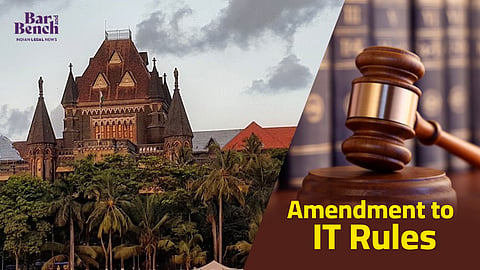
- News
- Columns
- Interviews
- Law Firms
- Apprentice Lawyer
- Legal Jobs
- हिंदी
- ಕನ್ನಡ

The Bombay High Court today questioned the Central government as to why the Rules concerning powers granted to Fact Checking Units (FCUs) could not apply to all online content, irrespective of whether that content is about government business.